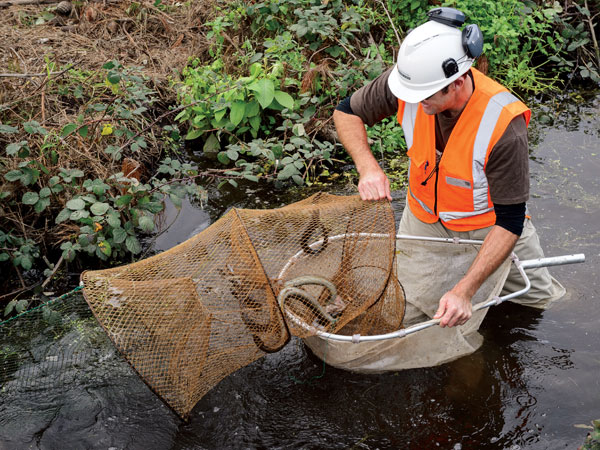Kapiti Expressway breaks new ground in sustainability
Date: 11 September 2014

One of the government’s RoNS (roads of national significance) is setting new benchmarks in environmental sustainability and collaboration between a major government agency, a local authority and outside contractors.
The MacKays to Peka Peka Expressway (M2PP) is a $630 million project consisting of 18 km of four-lane expressway through Paraparaumu and Waikanae, including a major new bridge over the Waikanae River. It is part of the Wellington Northern Corridor RoNS which aims to improve SH1 between Wellington Airport and Levin.
M2PP runs from just north of MacKays Crossing to Peka Peka Road, south of Otaki, and will improve road safety and relieve congestion in Kapiti by separating local and highway traffic. This is critical to support population growth in the region, which is expected to increase by 65,000 over the next 20 years, as well as providing local job and business opportunities.
The project will take four years to build and from a civil engineering perspective involves 18 bridges, including 564 precast beams up to 75 tonnes each, 3 million cu m of earthworks, 2.5 million tonnes of imported aggregate, 70,000 cu m of concrete and 10,000 tonnes of reinforcing steel.
However, its environmental sustainability measures are even more impressive. It includes vast landscaping and wetland planting, involving over one million plants, making it one of the largest planting projects the lower North Island has seen. Also in place are an array of safeguards for the preservation, protection and restoration of the local environment, such as stormwater mitigation, retention of vegetation and waterways and ecological quality.
Behind this project is a wide-reaching alliance made up of the NZ Transport Agency, Beca Planning and Infrastructure, Fletcher Construction and Higgins Group, supported by Goodmans Contractors, Incite and Boffa Miskell.
Kapiti Coast District Council was also an alliance partner during the design and consenting phases of the project – the first instance of a local authority joining with the NZTA in an alliance to agree the ground rules for a major project – and remains represented in the alliance as a non-financial participant.
By Dave MacIntyre

